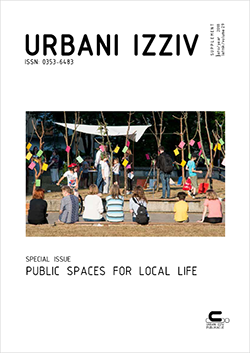Accessibility to welfare spaces in council housing neighbourhoods of Trieste: Research at the interface of public policies and communities
Accessibility to welfare spaces in council housing neighbourhoods of Trieste: Research at the interface of public policies and communities
Author(s): Elena MarchigianiSubject(s): Social Sciences, Rural and urban sociology
Published by: Urbanistični inštitut Republike Slovenije
Keywords: Council housing; urban regeneration; accessibility; welfare spaces; intermediate actors; public policies;
Summary/Abstract: After the Second World War, council housing neighbourhoods all over Europe played the role of laboratories where welfare state policies provided large quantities of houses, community spaces, and facilities. Today, their poor spatial quality is coupled to an increasing demand for public social and health assistance. Based on action research carried out in four peripheral neighbourhoods of Trieste (Italy) by the University in collaboration with public and third sector actors, this paper stresses the need to re-orient local welfare from a quantitative and functionalist approach to the concept of welfare spaces and a stronger attention to the qualities of services’ physical setting. Starting from the analysis of urban social dynamics, direct observation of everyday use of public spaces in the case study neighbourhoods, assessment of institutional policies and listening to inhabitants’ needs, the results from participatory processes of urban redesign are discussed. Working on the accessibility to public facilities invites a reconsideration of spatial solutions in relation to new ways of living common spaces and as a strategic device, both to improve the efficiency of healthcare policies and to strengthen relationships among residents. Conclusions focus on the role of the University as a stimulus to review regeneration processes, design tools and institutional routines.
Journal: Urbani izziv
- Issue Year: 29/2018
- Issue No: Supp.
- Page Range: 43-62
- Page Count: 20
- Language: English

